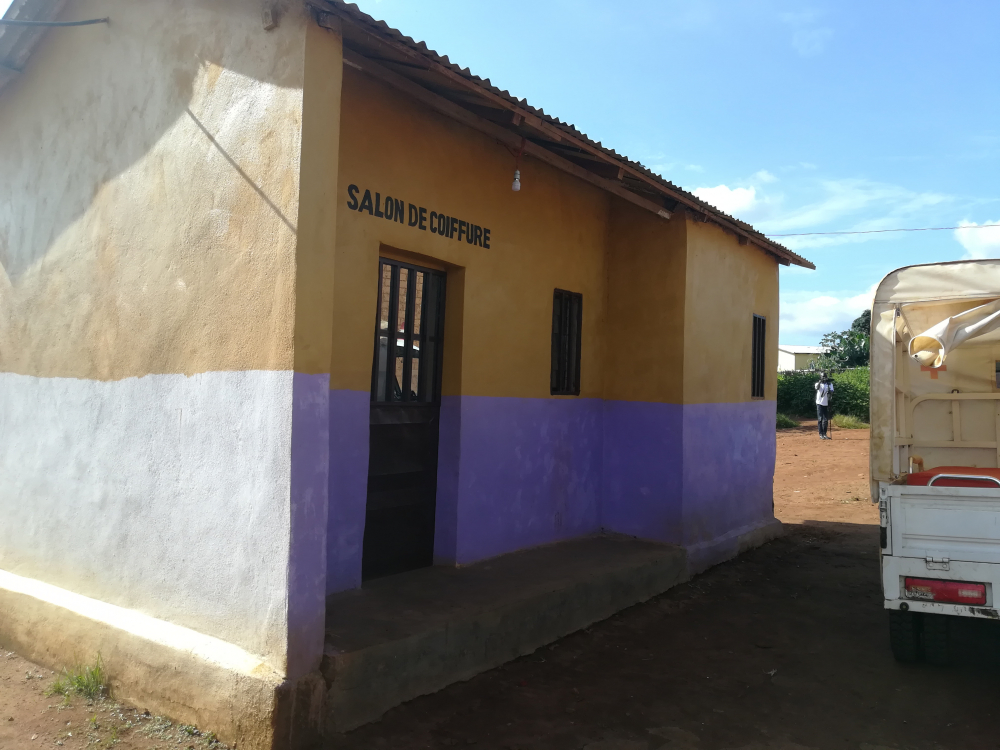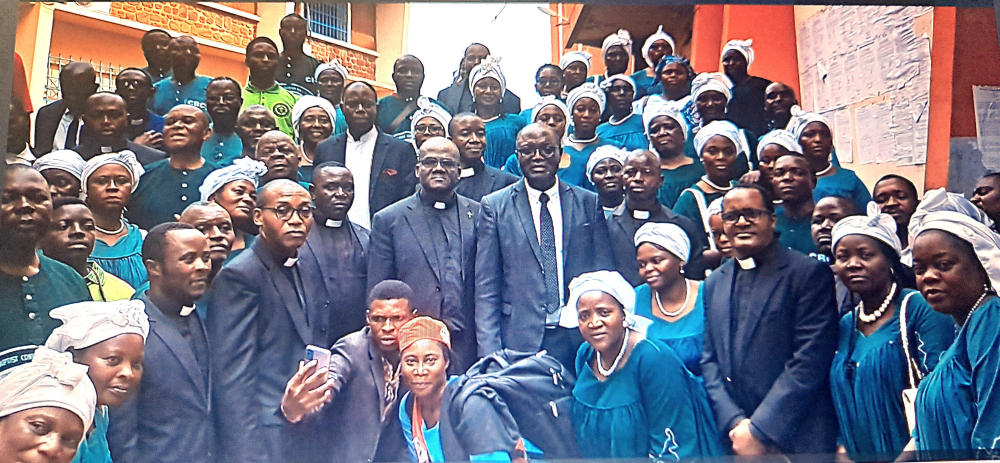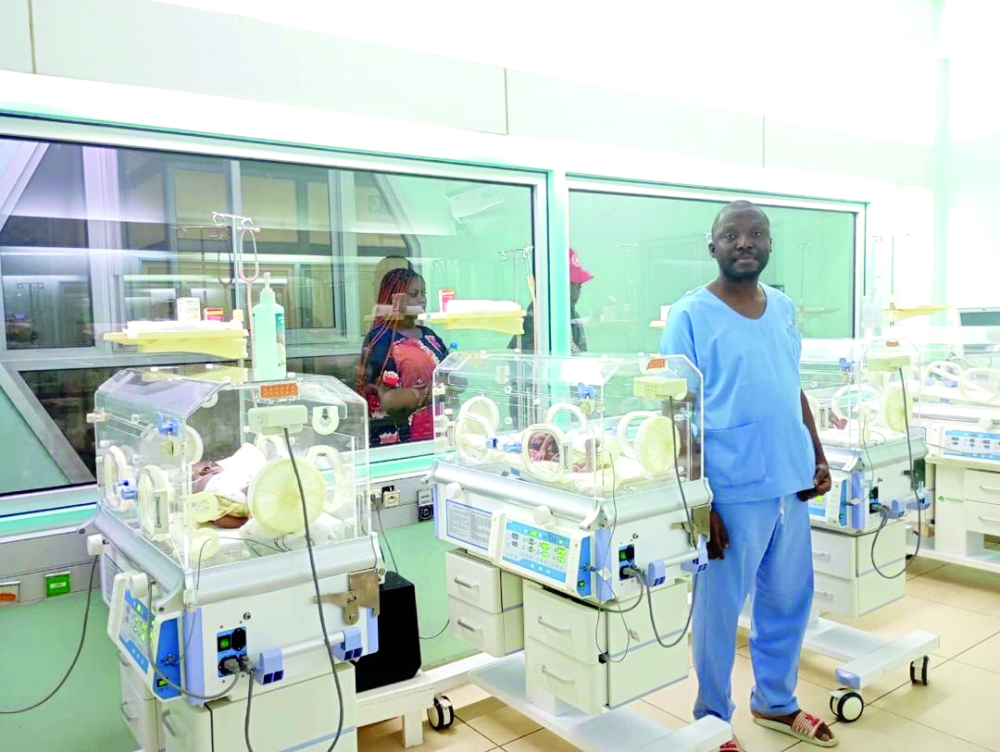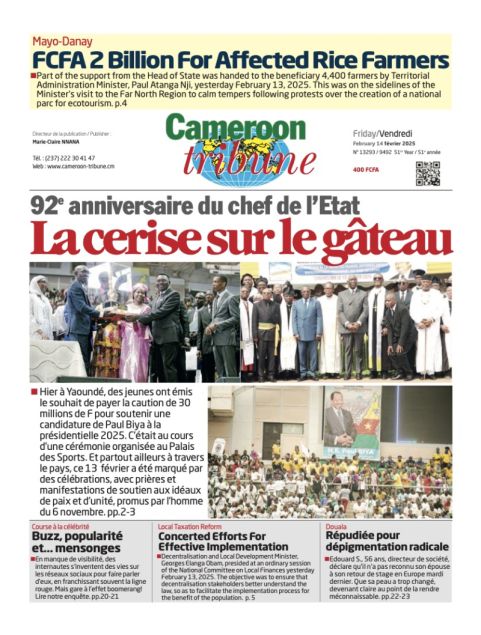Maternal, Newborn, Infant Health: Huge Investments, Palpable Positive Results
- Par Kimeng Hilton
- 24 août 2021 09:38
- 0 Likes

Wogomdou Integrated Health Centre in Faro and Deo Division of Adamawa Region today wears a new look, thanks to the project funded by the Islamic Development Bank, IsDB. And implemented by the Ministry of Public Health, with the technical support of UNICEF
“We have not had any deaths during delivery since the Maternal, Newborn and Infant Health Support Project, MNIHSP, went operational in 2018. Before then, there were cases of death because families had to hire commercial motorbikes at high cost to transport pregnant women to hospital. Some could not afford the fare, while bikes sometimes got to hospital late, resulting in deaths,” explains Ahmadou, Head of Wogomdou Integrated Health Centre. “Today, community-managed tricycle-ambulances promptly transport such cases to our health centre. Or in the case of referral, to Galim-Tignere Subdivisional Medical centre, 22 km away,” Ahmadou says.
Located in Galim-Tignere Subdivision, Faro and Deo Division of Adamawa Region, Wogomdou Integrated Health Centre, which falls under Tignere Health District, is one of the beneficiaries of the 2018-2021 Islamic Development Bank, IsDB-funded MNIHSP project. The project covers 35 health districts in the Far North, North, Adamawa, East and Centre Regions. And seeks to improve health services by reducing deaths resulting from child birth and amongst children.
Supported technically by the United Nations Children’s Fund, UNICEF and the United Nations Population Fund, UNFPA, Wogomdou Integrated Health Centre has since 2018 received considerable investments. These include the offer of two community-managed tricycle-ambulances for transporting patients to the health centre and for referrals; beds, delivery tables, baby couches; staff retraining; the drilling of an improved well and the construction of a water tower powered by solar energy.
“Women who deliver in our health centre spread the good news, thereby encouraging more women to come. Our community of over 6,000 people has heaved a sigh of relief because we did not have such equipment before. The impact of the donation on patient care is now evident to everyone, given its high quality. Moreover, our health centre is cleaner now,” Ahmadou admits.
“Before the advent of the project in 2018, we had about five deliveries per month in our maternity. Today, we carry out about 25 deliveries a month, thanks to tricycle-ambulances that transport women in labour to us at any time. And community health workers who accompany them for delivery,” says Ahmadou. He adds that staff working conditions have been improved, motivating them to give their best.
According to Ahmadou, water-borne diseases have virtually been wiped out in the community since the water tower was constructed in 2018 by UNICEF. Before then, the health centre received about 9 cases of water-related diseases per week. Now, they consult about two patients a week. Some villagers cover 7 km just to fetch quality water in the health centre for drinking at home. Given that the health centre is the only a...
Cet article complet est réservé aux abonnés
Déjà abonné ? Identifiez-vous >
Accédez en illimité à Cameroon Tribune Digital à partir de 26250 FCFA
Je M'abonne1 minute suffit pour vous abonner à Cameroon Tribune Digital !
- Votre numéro spécial cameroon-tribune en version numérique
- Des encarts
- Des appels d'offres exclusives
- D'avant-première (accès 24h avant la publication)
- Des éditions consultables sur tous supports (smartphone, tablettes, PC)














Commentaires